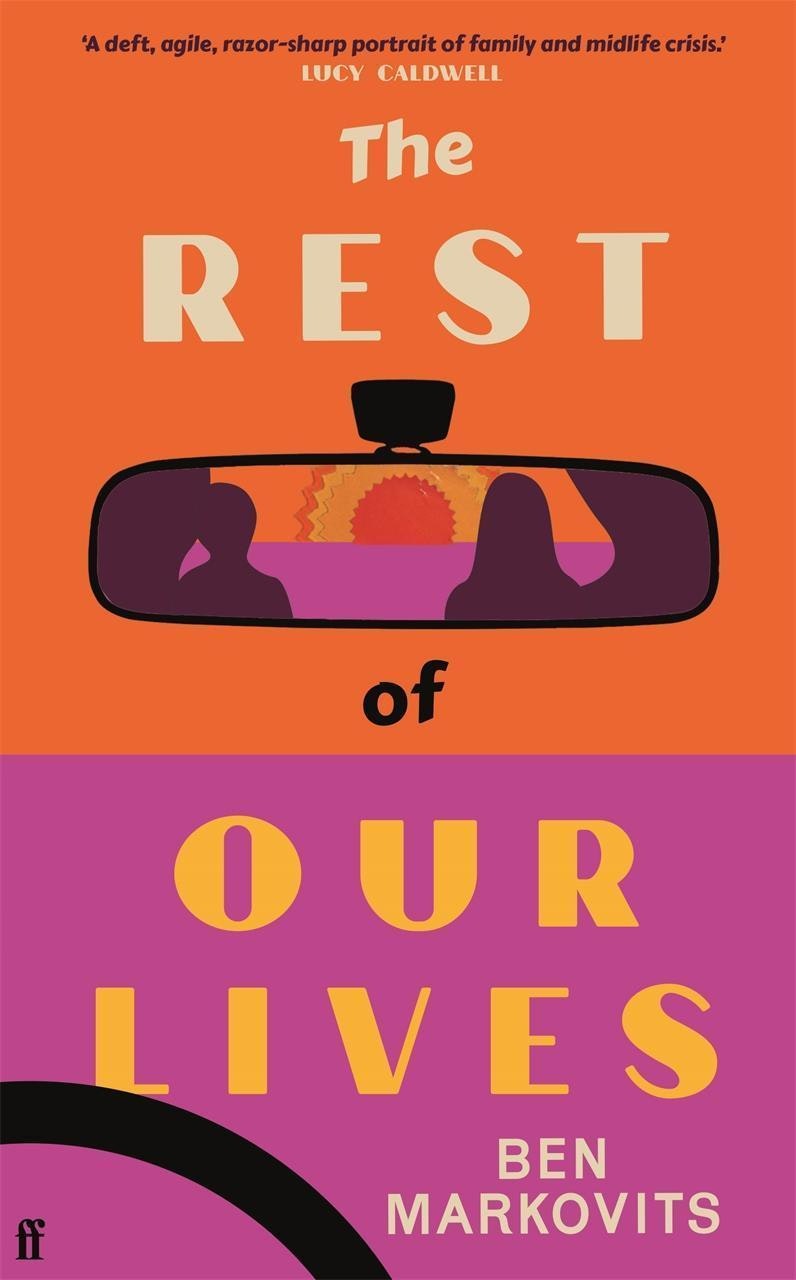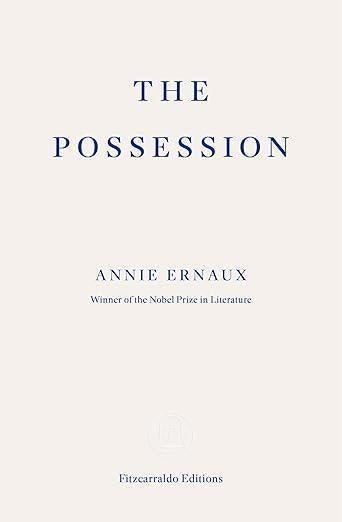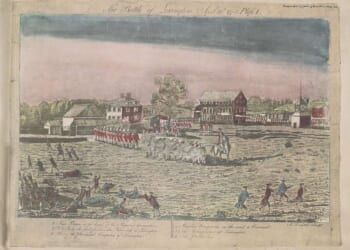This article is taken from the May 2025 issue of The Critic. To get the full magazine why not subscribe? Right now we’re offering five issues for just £10.
Ben Markovits is something of an enigma — to me, at least. The British-American novelist has been productive if not downright prolific, publishing 11 novels since his debut 21 years ago, and in 2013 was selected as one of Granta’s Best Young British Novelists. Yet I rarely see his name on prize shortlists, and have never had anyone press his books on me. He must be doing something right, though, to attract the continued support of a prestigious house like Faber — and I notice he has been rebranded with this novel, having previously been published as Benjamin. (What he gains in brevity he loses in rhythm.)
Markovits’ twelfth novel, The Rest of Our Lives, shows what a treat I’ve been missing. It is a book that has everything — a clear line of plot, turbulently interesting narrator, themes both modern and timeless — and feels like one of those books that, as you read, makes you think, “Why aren’t all novels like this?”

That interesting narrator is Tom Layward, who is at pains to avoid seeming interesting. He is seemingly a generic literary fiction figure — a middle-aged, middle-class married man: an academic to boot! — who annoys his wife Amy with his failure to get riled by anything. Perhaps it was to provoke a reaction that she had an affair a dozen years ago, with Zach Zirsky, a man who “was the kind of guy who danced with all the old ladies and little pigtailed girls at a bar mitzvah, so he could also put his arm around the pretty mothers and nobody would complain”.
Still, the affair is in the past, after Amy (“she looks like the kind of woman who can ride a horse, which she actually can”) came clean about it — even if Tom reckons “the reason she told me was because they broke up, and she needed somebody to talk to about it”.
There’s a wry quality to Tom’s tone, which may be the best way for him to navigate the modern world; he detects the generational shift when his daughter Miri calls him “Angry White Male” any time he does express irritation. Such as? Such as a dispute about how he taught a class on hate crime which led to “an issue with a couple of students”, which in turn led to Tom going on a “sort of sabbatical”.
Throughout, the reader must find their own way through Tom’s obfuscations, but we know he’s pissed off. His wife’s been seeing a therapist, he tells a friend, “which means when you argue with Amy, it’s like there’s this other person in the room, and you have to argue with her, too”. So much for his passive status, and now he’s voting with his feet, or at least his wheels: after dropping Miri off at her new university, he drives and drives.
So Tom goes on a trip down memory lane, visiting old friends, mostly men around his own age, some of whom are as fed up as Tom is. Brother Eric “didn’t understand what it takes to get by in a world that isn’t filled with people who love you”. Sam, another teacher, is more sanguine than Tom about students objecting to his teaching. “I don’t have any family left to have to pretend to be ashamed in front of.” Another man, Brian, is helping a college basketball player sue his club for anti-white discrimination. “The prima facie evidence is overwhelming.”
These men are disoriented in the modern world, struggling to understand the diminution in their importance. The question of handing on from one generation to another comes into sharper focus with Tom’s recurrent health issue (“little blackouts”), which escalate to an inevitable conclusion. “I had reached the age where I was the trouble.” Markovits manages his story with an admirable blend of fluidity and focus, a distinctive cast and a chewy management of contemporary issues.
“Something had come to an end, that much was clear,” observes Tom. “Whatever I was doing was over.” The Rest of Our Lives is the sort of book it’s tempting to read slowly, so it won’t be over too soon — but too irresistible to hold back on. Ben Markovits is, it turns out, not a writer to watch but one that we — that is, I — should have been reading all along.

If a sense of place is a keystone to great fiction, then that is one reason why Colwill Brown’s debut novel We Pretty Pieces of Flesh is so good. If I say it is set in Doncaster, I mean “set in” as a jewel is set in a ring or a fly in amber: held firmly, immersed. What helps the setting seep through the pages is the narrative voice, which is in a Doncaster — “Donny” — dialect. The result is that rarity: a novel that doesn’t sound like anything else.
“Ask anyone non-Northern, they’ll only know Donny as punchline of a joke or place they changed trains once ont way to London … Any commuter foolish enough to breach station’s threshold would backstep sharpish intut concourse’s promise of elsewhere and thank fuck they dint get themsens stuck here. If trains didn’t have to pass through it, they’d think, Doncaster wouldn’t need to be a place at all.”
It’s that blend of poetic (“promises of elsewhere”) and vernacular that gives the voice its delicious frisson. The book cycles between the viewpoints of three teenage friends — Rach, Shaz and Kel — who are distinguished in character but also by their chapters being written in first, second and third person respectively.
Rach is the anchor, steady-ish; Shaz the boldest and with the hardest background; Kel the most ambitious. “Lasses always liked Kel because Kel knew to laugh at jokes whether they made sense or not.” The three have experiences both shared and varied: all three like a night on the town (“shoulders back, tits out”); win fish at a funfair (“tail flick, scale glint”); two have absent fathers. “Shaz’s fatha wa dead — black lung — Kel’s had only run off.”
For the most part, the novel presents discrete scenes of events in the girls’ lives. These are comic and horrible accounts of innocence masquerading as experience. They dodge train fares and only get away with it when a shocking development comes that punches the reader in the heart. Shaz has an unfortunate call of nature in a McDonald’s. Rach tries to extricate herself from a relationship which looks like it’s getting too serious when her man buys her a necklace from Argos. “Ah did ovvertime fo’ that, you know.”
As things go on, divisions appear, until the end where a reunion becomes a moving account of stasis and change, and their characters — once in unison, now in contrast — stand out all the more clearly. We Pretty Pieces of Flesh is a brilliant evocation of working-class girlhood and womanhood, the contradictions where “you always wanted more: more laughs, more highs, more scabs, more lads” but the culture says “never be full of yoursen or up yoursen, never boast, never brag, never stick your neck out”. As a novel in any form it’s a terrific achievement; as a debut it seems miraculous.

Nobel-winner Annie Ernaux’s books cross the line between memoir and autofiction, and, like many writers who achieve prominence late in their career, we are now seeing a march of reissues. Her latest, The Possession, first published in 2002, is small in extent but not in force.
The book recounts the aftermath of a love affair. As ever, Ernaux is candid: why else put pen to paper? “I have always wanted to write [ … ] as if I were about to die.” And so she opens with her former morning routine: she wakes with her lover and “grab[s] his cock”, “as if hanging to a branch”. Yet her grip has slipped: the affair is over and “now he’s in the bed of another woman”.
One affair ends, another begins: “I was in both senses of the word possessed.” Cherchez la femme. As any fellow catastrophist will know, this sort of obsessive thinking has one advantage: “this state kept my daily cares and troubles at bay”. Nonetheless, her determination to find out more about the woman who replaced her — her own dark alter ego — is an exquisite form of self-flagellation, particularly knowing that she herself was once “the other woman” for a previous lover.
“To know her name was to own a little part of her,” she thinks as she scours websites based on clues to the other woman’s employment. But this desperation lives in the body as much as the mind. “The hollow pit in my chest, the heat in my hands” acts as a sort of physical proof, though it enacts the causal relationship entirely the wrong way around.
As she swings from passion to rationality in her thinking, a crisis is imminent: “There was something in me, a suffering, a madness, that I had to get rid of at all costs.” There is only one way for a writer to escape: to release the experience into prose. The obsession therefore “has become ‘the possession’, a period of time, circumscribed and completed”. With her body of work, Ernaux has built a life in writing, and each new — or old — episode grips us until the next one comes along.







